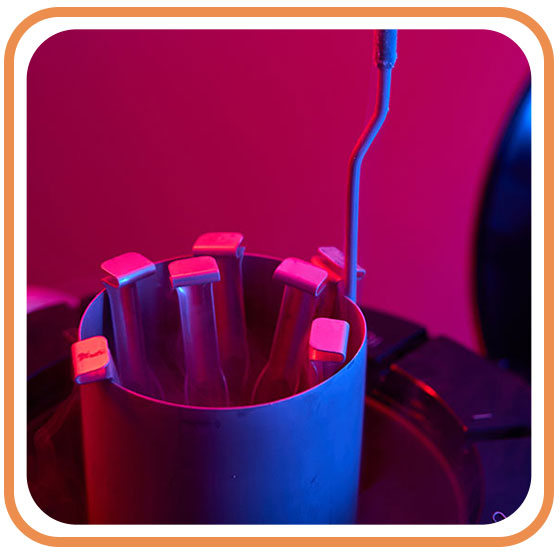One assistive reproductive method that allows women to “freeze” their potential fertility for later use is egg freezing, also referred to as oocyte cryopreservation or Fertility Preservation. The process entails retrieving the female’s eggs, freezing them, and storing them for eventual fertilization and implantation in the future.
In particular, the goal is to protect a woman’s fertility by choosing and cryopreserving oocytes (which will then be thawed and used for IVF) without fearing from menopause and potentially losing the chance in the future.
There are a number of reasons why a woman will agree to cryopreserve her oocytes, such as:
Delaying Parenthood: Before starting a family, many women today are pursuing their academic, professional, or other life goals. Since they would like to have a chance to have a child in the future, egg freezing can allow them to ensure and maintain their fertility long after they pass their 30s and 40s.
Fertility Preservation for Medical Reasons: Before taking medications that could affect fertility, women’s oocytes may be cryopreserved to aid in the treatment of certain illnesses (like cancer).
Genetic Screening: In order to have a genetically healthy child with a decreased chance of passing on genetic abnormalities, it can also be used combined with genetic screening (for example, to identify the presence of genetic damage or disease) to maximize the likelihood of parenthood without the risks that come with attempting pregnancy after a certain age.
Preserving Fertility: Even if a woman’s biological fertility is diminished due to age or illness, egg freezing allows her to maintain her fertility and choose to become a parent later in life.

Because a woman’s fertility peaks around age 35, egg cryopreservation is typically recommended for women in this age range. On the other hand, women exhibit an advantage until they are 40 years old. Women who have a solid history in ovarian reserve that is, a sufficient amount of viable eggs are suitable candidates for the same treatment.
The egg freezing process typically involves the following steps:
Initial Consultation: Our skilled fertility doctor will perform the required tests, go over the procedure in detail, and carefully review your medical history during your initial visit.
Ovulation Induction and Monitoring: A dose of hormone medications will be used to medicinally induce ovarian stimulation in the patient, and multiple mature oocytes will be retrieved. Additionally, the fertility specialist will closely monitor the patient’s progress with repeated testing .
Egg Retrieval: A minimally invasive surgery is then carried out by a fertility specialist to remove eggs from the ovaries during the maturity phase. Usually, a transvaginal ultrasound-guided needle is used for this.
Egg Freezing: After being recovered, the eggs are promptly frozen using a procedure called vitrification, which prevents ice crystal formation and the damage it causes.
Storage: Human eggs may be extracted from a cryogenic storage facility and kept at -196 C 321 (F) until the patient needs them, but they must be stored with considerable caution because frozen human eggs are very sensitive.
Contact us now for more information. 🧬
Age
One of the most crucial factors in determining the cryopreserving potential of the recovered oocytes is the woman’s age at the time of the egg retrieval process. Young women may be more likely to conceive successfully because of the existence of higher quality oocytes before freezing.
Ovarian Reserve
The amount of a woman’s ovarian reserve also significantly affects the success rate of oogenetic cryopreservation. Women who have a higher ovarian reserve typically do better.
Laboratory Techniques
The fertility clinic laboratory’s equipment and expertise are also crucial to the success of oocyte cryopreservation. Clinics that use cutting-edge cryopreservation techniques, such vitrification, are more effective at the process.

For women who need to store their fertility later in life, egg freezing is a useful technique. The person may be able to decide to freeze their eggs if, for example, they are aware of the procedure, the possible benefit, and the risk to themselves. Please contact our IVF team if you would like to schedule a Free consultation or would need more information about egg freezing.
WhatsApp us